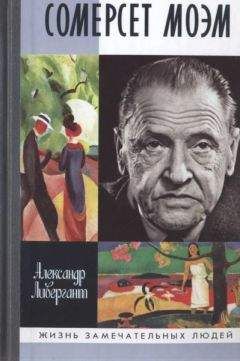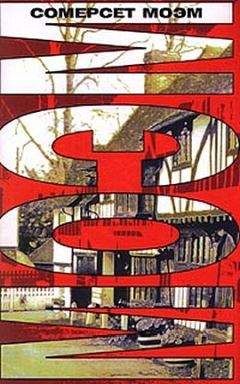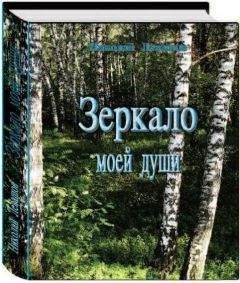Уильям Моэм - Мистер Всезнайка. Рассказы
energy ['enqdZI], happiness ['hxpInIs], substantial [sqb'stxnS(q)l], resignation ["rezIg'neIS(q)n]
"I wanted to live the perfect life while I still had the energy and the spirit to make the most of it. Twenty-five years seemed a long time to me, and twenty-five years of happiness seemed worth paying something pretty substantial for. I’d made up my mind to wait a year and I waited a year. Then I sent in my resignation and as soon as they paid me my gratuity I bought the annuity and came on here."
"An annuity for twenty-five years (ренту на двадцать пять лет)?"
"That’s right (совершенно верно)."
"Have you never regretted (и вы ни разу не пожалели; never— никогда; ни разу)?"
"Never (ни разу). I’ve had my money’s worth already (я уже получил сполна за свои деньги; money'sworth— что-либо оправдывающее затрату). And I’ve got ten years more (и у меня еще десять лет впереди; more— больше; еще, вдобавок). Don’t you think after twenty-five years of perfect happiness (разве вам не кажется, что после двадцати пяти лет совершенного счастья; tothink— думать; полагать, считать) one ought to be satisfied to call it a day (следует удовлетвориться: «человеку следует быть удовлетворенным» и покончить с этим; tocall— кричать, звать; называть; to call it a day — прекратить какое-либо дело)?"
"Perhaps (может быть)."
He did not say in so many words what he would do then (он не сказал прямо, что он сделает тогда; word— слово;insomanywords— определенно, недвусмысленно; прямо, откровенно), but his intention was clear (но его намерение было очевидным; clear— ясный, светлый; понятный, не вызывающий сомнений). It was pretty much the story my friend had told me (это была почти та /же самая/ история, которую рассказал мне мой друг; prettymuch— очень, в значительной степени), but it sounded different when I heard it from his own lips (но звучала она по-другому, когда я услышал ее из его собственных уст;tosound— звучать, издавать звук; звучать, создавать впечатление).
regret [rI'gret], satisfied ['sxtIsfaId], intention [In'tenS(q)n], clear [klIq]
"An annuity for twenty-five years?"
"That’s right."
"Have you never regretted?"
"Never. I’ve had my money’s worth already. And I’ve got ten years more. Don’t you think after twenty-five years of perfect happiness one ought to be satisfied to call it a day?"
"Perhaps."
He did not say in so many words what he would do then, but his intention was clear. It was pretty much the story my friend had told me, but it sounded different when I heard it from his own lips.
I stole a glance at him (я взглянул на него украдкой; tosteal— воровать, красть; делать что-либо незаметно, украдкой). There was nothing about him that was not ordinary (все в нем было заурядным: «в нем не было ничего, что не было бы заурядным»; ordinary— обычный, обыкновенный; заурядный, посредственный). No one, looking at that neat, prim face (никто, глядя на это аккуратное, чопорное лицо), could have thought him capable of an unconventional action (смог бы подумать, что он способен на необычный поступок; capable— способный, одаренный; способный /на что-либо/;conventional— приличный; общепринятый, традиционный;unconventional— чуждый условностям, нетрадиционный). I did not blame him (я не винил его; toblame— обвинять, порицать). It was his own life that he had arranged in this strange manner (это же была его собственная жизнь, которую он устроил столь необычным образом; toarrange— приводить в порядок; уладить, урегулировать;strange— незнакомый; странный, необычный;manner— метод, способ; образ действий), and I did not see why he should not do what he liked with it (и я не видел /причин/, почему бы ему не поступать /с ней/, как ему хочется). Still, I could not prevent the little shiver that ran down my spine (и все же я не смог сдержать легкой дрожи, пробежавшей по /моей/ спине; toprevent— предотвращать, предупреждать;little— маленький; слабый;spine— позвоночник).
"Getting chilly (озябли; toget— доставать, добывать; становиться;chilly— холодный, прохладный /о погоде/; зябкий, продрогший)?" he smiled (улыбнулся он). "We might as well start walking down (мы вполне можем начать спускаться). The moon’ll be up by now (теперь уже луна будет высоко)."
ordinary ['O: d(q)nrI], unconventional ["Ankqn'venSqn(q)l], shiver ['SIvq]
I stole a glance at him. There was nothing about him that was not ordinary. No one, looking at that neat, prim face, could have thought him capable of an unconventional action. I did not blame him. It was his own life that he had arranged in this strange manner, and I did not see why he should not do what he liked with it. Still, I could not prevent the little shiver that ran down my spine.
"Getting chilly?" he smiled. "We might as well start walking down. The moon’ll be up by now."
Before we parted Wilson asked me (перед тем как мы расстались, Уилсон спросил /меня/; to part — разделять/начасти/;разлучаться, расставаться) if I would like to go and see his house one day (не хочу ли я /прийти/ как-нибудь и посмотреть его дом; one day — однажды, как-тораз; вближайшиедни); and two or three days later, finding out where he lived, I strolled up to see him (и спустя два или три дня, выяснив, где он живет, я неторопливо отправился навестить его; to stroll — гулять, прогуливаться; to see — видеть; видеться, встречаться). It was a peasant’s cottage (/его дом/ представлял собою крестьянский домик; cottage — коттедж, загородныйдом; хибарка, хижина), well away from the town, in a vineyard, with a view of the sea (довольно далеко от города, /расположенный/ в винограднике, с видом на море; well — хорошо, отлично; значительно). By the side of the door grew a great oleander in full flower (рядом с дверью рос = стоял огромный олеандр в полном цвету; full — полный, налитыйдокраев; изобилующий, обильный; flower — цветок; цветение).
peasant ['pez(q)nt], cottage ['kOtIdZ], flower ['flauq]
Before we parted Wilson asked me if I would like to go and see his house one day; and two or three days later, finding out where he lived, I strolled up to see him. It was a peasant’s cottage, well away from the town, in a vineyard, with a view of the sea. By the side of the door grew a great oleander in full flower.
There were only two small rooms (/в нем/ были только две небольшие комнаты), a tiny kitchen (крохотная кухонька), and a lean-to in which firewood could be kept (и пристройка с односкатной крышей, в которой можно было хранить дрова; fire — огонь, пламя; wood — лес, роща; дрова). The bedroom was furnished like a monk’s cell (спальня была обставлена как монашеская келья; to furnish — снабжать; обставлять, меблировать; cell — камера, отсек; келья), but the sitting-room, smelling agreeably of tobacco, was comfortable enough (но небольшая гостиная, приятно пахнувшая табаком, была достаточно уютной; to smell — обонять, чувствоватьзапах; пахнуть, иметьзапах), with two large armchairs that he had brought from England (/в ней находились/ два больших кресла, которые он привез из Англии; to bring — приносить; привозить), a large roll-top desk (большое бюро с выдвижной крышкой), a cottage piano (маленькое пианино), and crowded bookshelves (и битком набитые книжные полки). On the walls were framed engravings of pictures by G. F. Watts and Lord Leighton (на стенах /висели/ обрамленные гравюры с картин Г.Ф. Уоттса и лорда Лейтона; to frame — создавать; вставлятьвраму).
furnished ['fWnISt], monk [mANk], agreeably [q'gri: qblI], cottage piano ["kOtIdZ'pjQ: nqu], engraving [In'greIvIN]
There were only two small rooms, a tiny kitchen, and a lean-to in which firewood could be kept. The bedroom was furnished like a monk’s cell, but the sitting-room, smelling agreeably of tobacco, was comfortable enough, with two large armchairs that he had brought from England, a large roll-top desk, a cottage piano, and crowded bookshelves. On the walls were framed engravings of pictures by G. F. Watts and Lord Leighton.
Wilson told me that the house belonged to the owner of the vineyard (Уилсон рассказал мне, что этот дом принадлежит хозяину/собственнику виноградника) who lived in another cottage higher up the hill (который живет в другом доме, выше на холме), and his wife came in every day to do the rooms and the cooking (и его жена приходит каждый день, чтобы убрать комнаты и приготовить /еду/; to do — делать; убирать/помещениеит.п./). He had found the place on his first visit to Capri (он нашел этот домик во время своего первого визита на Капри), and taking it on his return for good had been there ever since (и, сняв его по своем возвращении навсегда = и, вернувшисьокончательно, снялего и жил там с тех самых пор; to take — брать, хватать; снимать, арендовать/помещение/; for goodнавеки; навсегда). Seeing the piano and music open on it, I asked him if he would play (увидев пианино, и на нем открытые ноты, я попросил его сыграть что-нибудь: «спросил его, не сыграет ли он»; music— музыка; ноты;toask— спрашивать; попросить).
"I’m no good, you know (я плохо играю, знаете ли; no— никакой, нет; перед названиями профессий, занятий — означает несоответствие;good— хороший; умелый, искусный), but I’ve always been fond of music (но я всегда любил музыку) and I get a lot of fun out of strumming (и я получаю много удовольствия от бренчания; fun— веселье, забава, развлечение)."
belong [bI'lON], owner ['qunq], return [rI'tWn]
Wilson told me that the house belonged to the owner of the vineyard who lived in another cottage higher up the hill, and his wife came in every day to do the rooms and the cooking. He had found the place on his first visit to Capri, and taking it on his return for good had been there ever since. Seeing the piano and music open on it, I asked him if he would play.
"I’m no good, you know, but I’ve always been fond of music and I get a lot of fun out of strumming."
He sat down at the piano and played one of the movements from a Beethoven sonata (он сел за пианино и сыграл одну из частей из сонаты Бетховена; movement — движение; частьмузыкальногопроизведения). He did not play very well (играл он не очень хорошо). I looked at his music (я взглянул на /его/ ноты), Schumann and Schubert (Шуман и Шуберт), Beethoven (Бетховен), Bach and Chopin (Бах и Шопен). On the table on which he had his meals was a greasy pack of cards (на столе, за которым он ел: «принимал пищу», /лежала/ засаленная колода карт; grease — топленоесало, жир; pack — тюк, связка; карт. колода). I asked him if he played patience (я спросил у него, раскладывает ли он пасьянсы; patience— терпение, терпеливость; карт. пасьянс).
"A lot (часто; lot— жребий; разг. большое количество, множество)."




